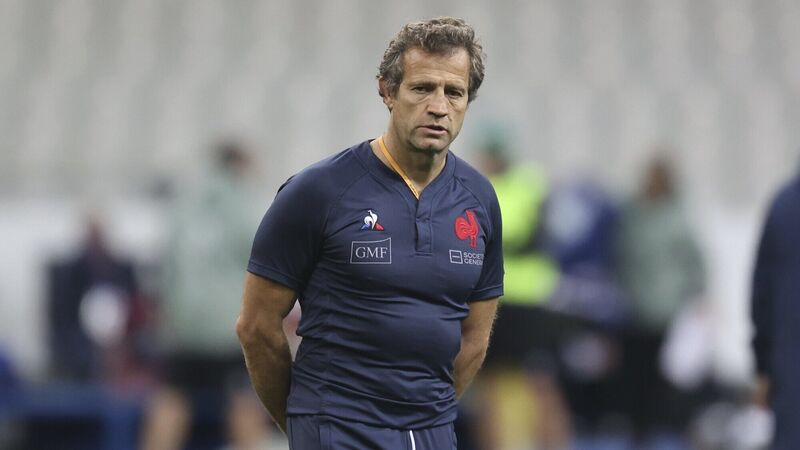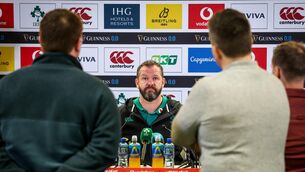Donal Lenihan: French investment in youth already yielding impressive returns

France head coach Fabien Galthie before the 6 Nations match at the Stade de France last month. Picture: PA Wire via MaxPPP.
There's a strange symmetry about Ireland starting and finishing the most bizarre of calendar years with a home game against Scotland.
Taking over the reins of the national side from a head coach with the lengthy list of achievements Joe Schmidt had accumulated is challenging enough at the best of times.










